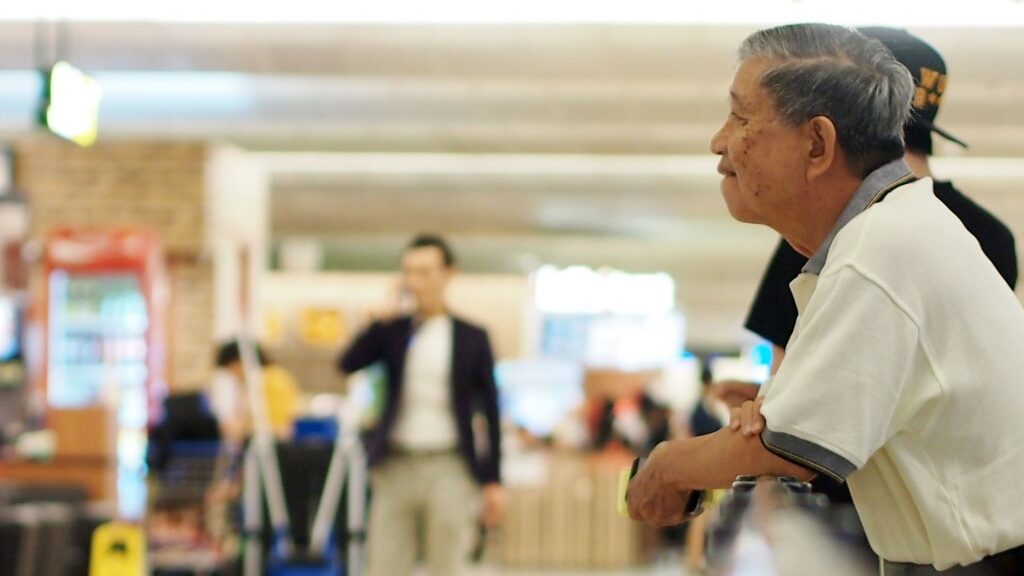Transnational ageing and “care technologies”: Chinese grandparenting migrants in Singapore and Sydney
May 26, 2023

Professor Elaine Ho (NUS Geography) and Professor Tuen Yi Chiu (Department of Sociology and Social Policy, Lingnan University, Hong Kong) consider the use of technology in bridging the cultural and generational gaps among the grandparent generation in ‘Transnational ageing and “care technologies”: Chinese grandparenting migrants in Singapore and Sydney’ (Population, Space and Place, 2020)
Singapore and Australia both have sizeable Chinese immigrant populations, with 2015/2016 figures indicating 450,000 and 500,000 (Singaporeans and Australians, respectively) that were born in China in the two countries. Grandparents often wish to live with their children and grandchildren, and contribute to family welfare through the unpaid labour of preparing meals for the family, helping to bring up young children, and other familial social activities. In Singapore visa schemes range from 30-day social visits to 5-year LTVP (long term visit passes) that are renewable, and in Australia there is the possibility for permanent residency through the Contributory Parent visa.
The study consisted of in-depth interviews with 72 grandparenting migrants in both Singapore and Sydney, the majority of whom were on temporary visas, and only a handful of whom had permanent residency in the country where their children lived. A subset of 21 migrants (10 in Singapore and 11 in Sydney) agreed to GPS tracking and mental mapping interviews in order to provide a deeper understanding of their daily routes and routines.
Language was often the most difficult aspect for the grandparents in the study, with transport and public information in the English language proving the most challenging. To overcome the language barrier, participants spoke of reliance on their smartphone to capture images of labels in English which translation applications would then convert to the Chinese language. ICT (Internet Communication technologies) functioned as enabling tools that allowed the migrants to better carry out their care duties as well as social activities in an otherwise unfamiliar environment.
Applications such as WeChat are highlighted by A/P Ho and Prof Chiu as great social levelers for older migrants who were otherwise reluctant to venture out beyond their neighbourhoods. Through WeChat many were able to befriend other mainland Chinese grandparenting migrants and were able to organise meetings, activities, as well as simply share information, photos, and videos about similar joys and difficulties.
Read the full article here.
